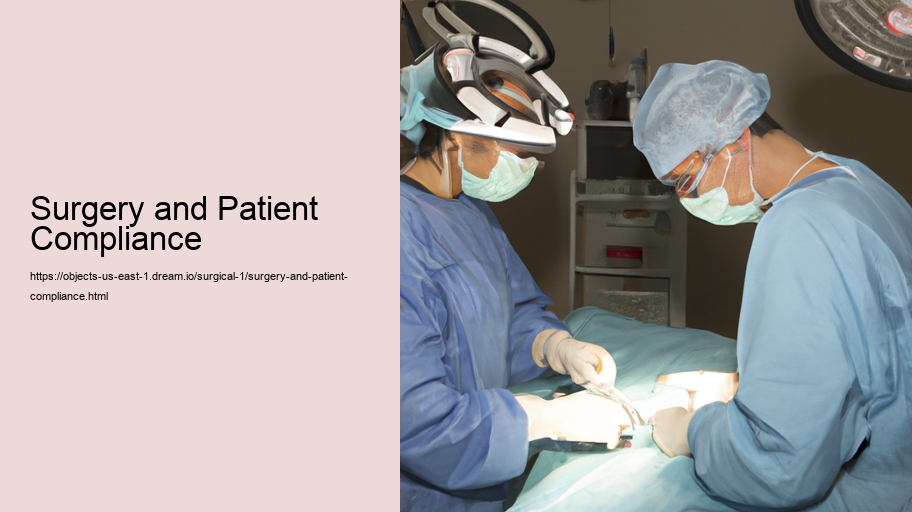Surgery and Patient Compliance: An Essential Partnership for Healing
Surgery can be a life-altering event. It is an intricate dance between the surgeon's skill and the body's ability to heal, which is greatly influenced by the patient's compliance post-operation. Patient compliance, or the degree to which a patient correctly follows medical advice, is a critical component of the surgical process, extending from the initial consultation through to complete recovery.
Understanding the nature of surgery is the first step toward appreciating the importance of patient compliance. Surgery is an intervention that often aims to correct a problem that cannot be adequately managed through less invasive means. Whether it's repairing a broken bone, removing a diseased organ, or bypassing blocked arteries, the goal of surgery is to improve the patient's quality of life. However, the benefits of such procedures are not guaranteed by the surgery alone; they are also highly dependent on how well patients adhere to their post-operative instructions.
Before surgery, patients are usually provided with a set of guidelines designed to prepare them for the operation and the subsequent recovery period. This may include advice on diet, medications, or cessation of certain activities such as smoking or drinking alcohol. Compliance at this stage can significantly affect the outcome of the surgery. For example, patients who smoke are at a higher risk of complications during and after surgical procedures. By following pre-surgical advice, patients can reduce their risk of complications and set the stage for a smoother recovery.
Post-operative care is where patient compliance becomes even more crucial. After surgery, patients are typically given a regimen that may include medications, wound care instructions, physical therapy, dietary restrictions, and follow-up appointments. Each of these components plays a vital role in healing and preventing complications such as infection, deep vein thrombosis, or the breakdown of surgical sites.
Medication compliance is one of the cornerstones of post-surgical care. Pain management, for instance, allows patients to participate in necessary rehabilitation activities. If pain is not adequately controlled because patients fail to take their medications as prescribed, they may not move or exercise as instructed, leading to poor outcomes such as decreased mobility or even the formation of blood clots.
Wound care is another area where compliance is key. Keeping surgical sites clean and properly dressed can prevent infections that may not only delay healing but also require further medical intervention, potentially leading to readmission to the hospital. Similarly, physical therapy and exercises are designed to strengthen the body and promote healing. Ignoring these protocols can result in decreased function and increased recovery time.
Follow-up appointments are an opportunity for the surgeon to monitor the patient's progress and catch any issues before they become significant problems. Skipping these appointments can mean that warning signs of complications or other health issues might go unnoticed and untreated.
Non-compliance can stem from a variety of factors. Sometimes patients do not understand the instructions given to them, or they may be overwhelmed by the complexity of their care regimen. In other cases, patients may be non-compliant due to psychological factors such as denial or depression. Financial issues can also play a role, as some patients may not be able to afford their medications or follow-up care.
Healthcare providers can improve patient compliance through clear communication, simplifying medication regimens where possible, and providing support for patients who may be struggling with psychological or financial issues. Cultivating a trusting relationship with patients can encourage them to adhere to their post-operative plan.
In conclusion, patient compliance is not just a recommendation; it is a crucial aspect of the surgical process that can determine the success of an operation and the speed and quality of recovery. Surgery is not the end of the treatment but the beginning of a recovery journey that the patient and healthcare team embark on together. By following medical advice, patients can ensure they get the most out of their surgical intervention and return to their daily lives with improved health and well-being.
